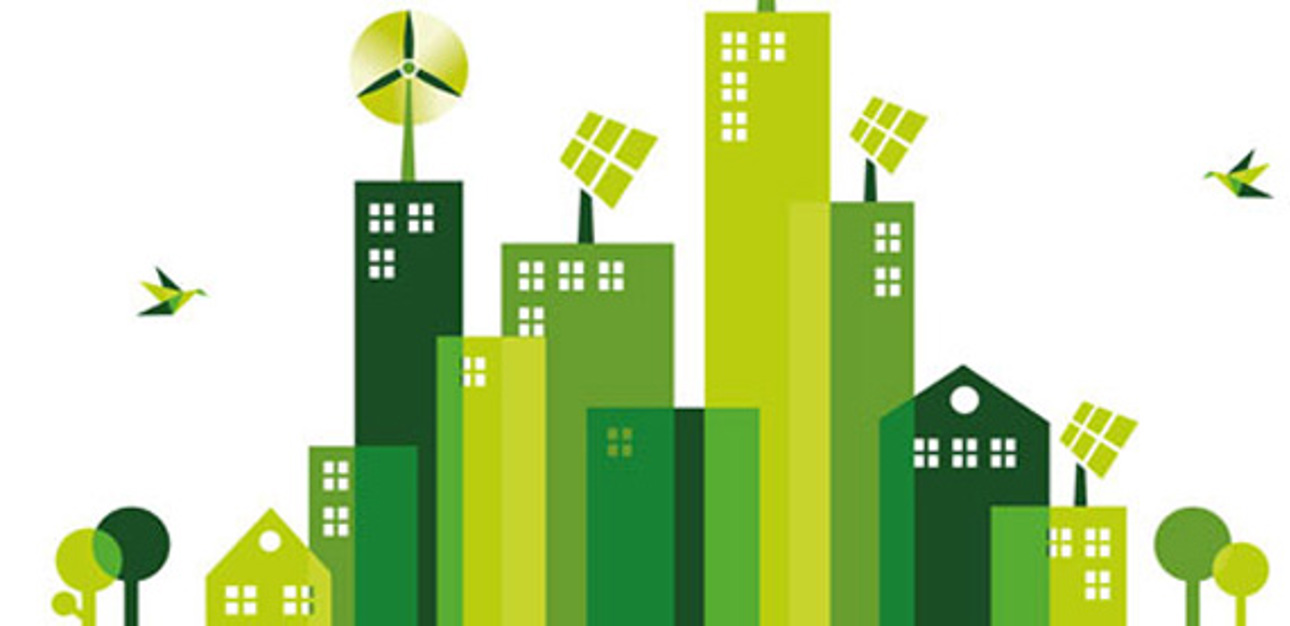Eco-cities go greener with their energy supply
Jun 30, 2014

In many countries and cities, the current infrastructure to generate power and heat is based on coal and heavy fuel oil. However, their usage is becoming more challenging due to their effect on climate change. Another major challenge that cities face is the ever-increasing amount of waste and how to handle waste streams sustainably.
In finding the most efficient and sustainable solutions to these challenges, it is important that decision-makers, research institutes, universities and technology providers communicate and cooperate with each other, for example, through public-private partnerships. Encouraging new approaches are found in the Nordic countries where cities and local energy producers have successfully replaced fossil fuel energy flows with biomass and waste.
Waste is a valuable fuel
The view on waste is changing; what used to be a problem is now a valuable fuel. One tonne of combustible waste contains the energy equivalent of approximately 300 liters of crude oil. Air pollution and the issue of hazardous emissions connected to combustion have been basically eliminated by modern environmental technology.
One of the cities that has actively made its energy production more sustainable is Borås in Sweden. Years ago, it set itself a goal to become a city free from fossil fuels. The transition from using oil and gas in district heating has been made in steps. A major leap towards a fossil-free city was taken in 2005 with the commissioning of a new, world-class waste-to-energy plant that features two 20 MWth Bubbling Fluidized Bed boilers. The plant’s 200 GWh annual production of fossil-free energy has contributed to coming closer to the city’s goal.
Increased efficiency and greater value from waste at all points of the waste stream
Well-planned waste management can benefit cities in many ways. Lahti, Finland is another city which has set high targets for sustainability and wants to be recognized as a truly green city. In April 2012, its energy company, Lahti Energy Ltd., started up the Kymijärvi II plant, which is the world’s first gasification power plant running purely on sorted waste, in other words, solid recovered fuel (SRF). It produces 50 MW of electricity for the national grid and 90 MW of district heat for Lahti and its neighboring areas. According to the company’s experience, gasification is the most energy-efficient way to utilize waste.
In Lahti, a new supply chain has been born around waste. Fuel payments have created a new market for fuel preparation, and the quality of SRF has improved. Tighter quality control benefits other SRF users as well, for example, material recycling of items such as metals. Fuel suppliers have been able to invest in new machinery, and operations have created approximately 100 new jobs in the supply chain.
The CO2 emissions were cut by 30 % from 2011 to 2012, which is remarkable for a plant that has operated only since April 2011. The company’s goal is to reduce CO2 emissions to half from the 1990 level by 2025 and help City of Lahti to seek the role of the leading green city in Finland.
Biomass and waste are playing an increasing role in the future energy supply
All forms of renewable energy are needed to reduce greenhouse emissions and plan for greener future. In addition to waste, the local renewable fuels such as various biomasses are the most economically viable way – they generate both heat and electricity, are locally available and benefit the local economy.
With today’s technology biomass can also replace coal in existing coal-fired plants. Such a plant was recently started up in Vaasa, Finland. Local energy company, Vaskiluodon Voima now operates the world’s biggest biomass gasification plant. With the new 140 MW gasification plant, the company will be able to cut CO2 emissions by around 230,000 tonnes per year, equivalent to the annual emissions of 70,000 cars.
Several conversion technologies to choose from
All of these three cases feature Valmet’s technology. During the past ten years, the company has delivered more than 13 GWth of boiler capacity that utilizes renewable fuels and reduces emissions associated with fossil-fuel-fired boilers.
“This CO2 neutral energy production has helped to avoid 40 million tonnes of greenhouse gas emissions annually, corresponding to emissions from over 24 million cars,” says Jyrki Holmala, President of Valmet’s Pulp and Energy business line. “This is possible thanks to our fluidized bed boiler and gasification technology and their ability to convert various renewable raw materials, such as forest residuals, non-food agro fuels and waste, into energy.”
The world’s largest biomass boilers come from Valmet, but the company is also Europe’s leading provider of medium- and small-scale power and heating plants using biomass and fuels derived from recycled waste.
Bio- and waste based fuel sources can be found in all corners of the world, and Valmet aims to create technology that can efficiently and sustainably utilize these local resources globally. To fully cover all possibilities, the company is constantly looking for ways to expand not only its technological base and geographical coverage but also to offer its comprehensive energy expertise for cities in their waste and energy challenges.